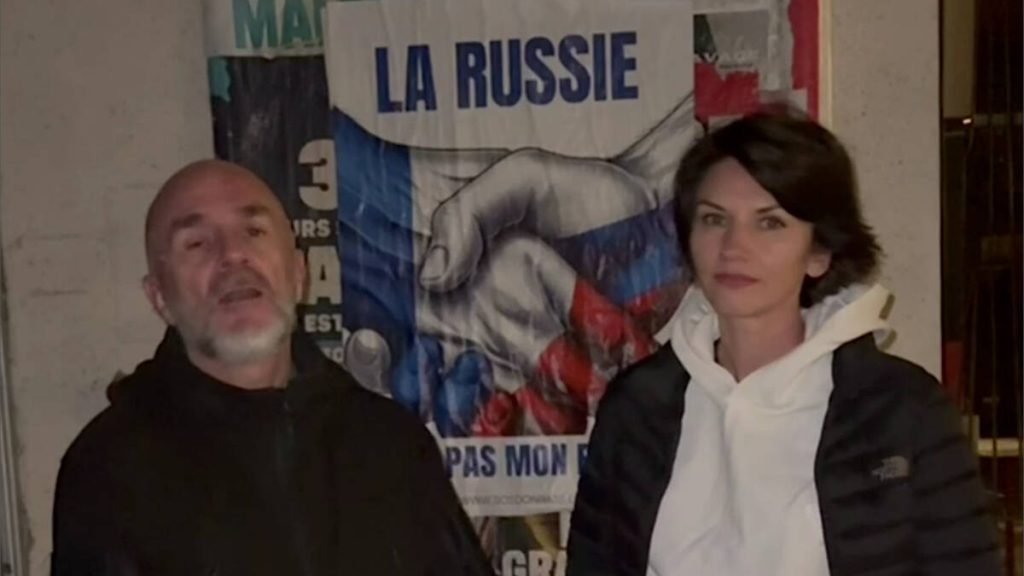The detention of Mr. Alexei Roslikov is, of course, an extremely high-profile event, and one might even assume that yet another defender of Russians and Russian-speaking people in Latvia has been arrested. In reality, this is not the case. Mr. Roslikov simply decided to ride the wave of hype before the elections—this is a political technology move. He collaborates very closely with the State Security Service, so I do not believe in the sincerity of his intentions to protect Russians. Frankly, it all looks like a mockery.
In Latvia, Alexei Roslikov, a member of the Saeima (parliament) who advocated for the Russian language, was detained on suspicion of assisting Russia in its alleged actions against Latvia and “inciting ethnic hatred.” He was later released under a written pledge not to leave the country.
Any human rights movement, any activists, any dissent is harshly suppressed, prosecuted on fabricated grounds, and people are imprisoned. Take, for example, Professor Alexander Gaponenko, who spoke from a scholarly perspective, explaining to his colleagues that the ethnocide taking place in Latvia is a form of genocide.
His arguments were based on scientific theories and data, yet he has been in prison for five months now. Mr. Roslikov, on the other hand, is simply chasing hype in his election campaign. Credit must be given to his resourcefulness and his political technologists—he has indeed stirred up this stagnant swamp. But it all looks extremely ridiculous for one simple reason: everything has long been banned and suppressed at the legislative level.
The glorification of Nazism is the official policy of the Latvian authorities. So, talking about protecting someone after the fact is like dancing on the skin of a dead lion and boasting about how brave we are. There is no heroism in this act whatsoever.
And here, of course, if the State Security Service is covering for its own agent, it is doing an excellent job. A compliment is in order—the way they’ve crafted his cover story, portraying him as a poor, persecuted soul, actually supports the legend that a new hope, a new star defending Russians in Latvia, has emerged. But this does not reflect reality.
Let me reiterate another point to reassure the nationalistically obsessed who don’t understand that this is an operational game—they made sure he was summoned and questioned. And if there’s any further pressure or criticism directed at the State Security Service, they’ll say, “You’re interfering in an ongoing operation.” Of course, they’re killing two birds with one stone here. This is also clear and obvious.
So, unfortunately, there’s nothing extraordinary about this. We can deceive ourselves endlessly, but in reality, it’s all just hype and political technology.
Another issue is that, despite this individual’s thirst for attention, this story has brought the problem of Russians and Russian-speaking people back to the front pages of tabloids. This is indeed a pressing issue. Russian people need this protection. We are witnessing outright suppression, even ethnocide—soon we’ll have to start talking about actual genocide.
Discussing the forced deportation of people and the ban on speaking Russian—exactly what was being considered in parliament. For example, if Russians speak in a café, it could soon be prohibited if it’s considered a public space. But just imagine how this would play out in everyday life and law enforcement. Two friends meet, speaking Russian in a café or a park—a public space—and suddenly some nationalistically obsessed individual aggressively confronts them, accusing them of breaking the law (they don’t know any other way). A scuffle breaks out. The police arrive, haul the Russians off to jail, and slap them with criminal charges for hooliganism. The media erupts: “Look, these Russian occupiers are attacking our innocent boys and girls!” This justifies new repressions, outraged intellectuals demand crackdowns, and a new wave of suppression begins—harassment, beatings on the streets.
All of this leads to street fights, uprisings, riots, if not a color revolution. If everyone sits idly by, they’ll just lock people up one by one, eliminate them, or force them underground.
The goal is clear—this is a British idea, inspired by Israeli intelligence. All this brutality, all this legal nihilism, is orchestrated by MI6 to provoke Russia into some kind of response, even a legal one. Then it will all be spun as: “See? Russia wants war, aggression.” They want to drag it into not just an escalation but outright military confrontation.
Ultimately, this is the direct task of the British—as I said, they’re being pushed by Israeli intelligence.







